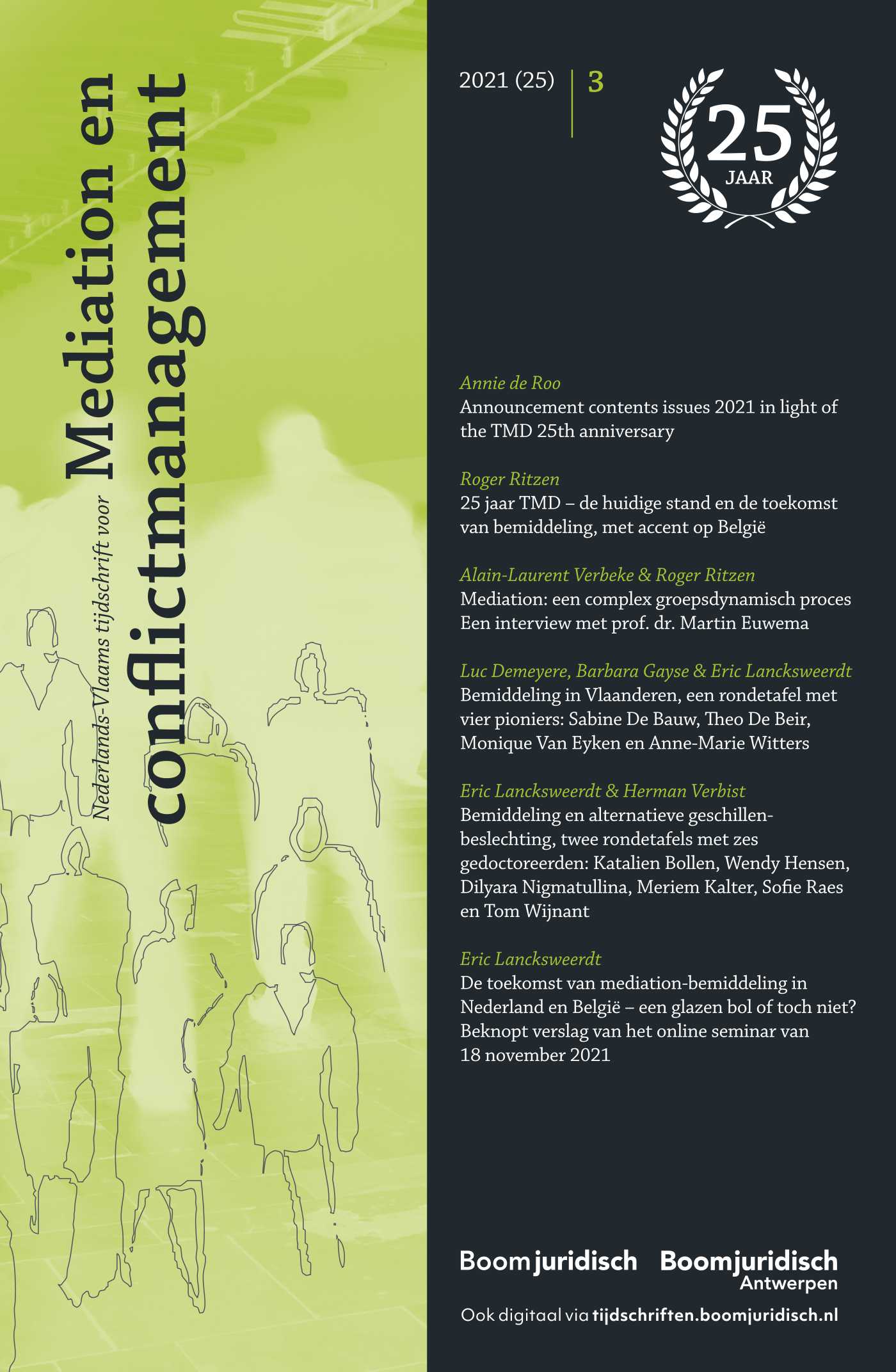|
Construction contracts are particularly prone to the emergence of disputes. In Belgium, construction disputes have traditionally been referred to State Courts. In recent years however, there has been a growing interest in Alternative Dispute Resolution (ADR), which has gradually affected the Belgian construction sector. There are now several institutions dedicated solely to providing arbitration and ADR services to the construction industry.Beside the Centre belge de l’arbitrage et de la mediation, three institutions are specialized in the settlement of construction and real estate disputes: the Chambre de Conciliation, d’Arbitrage et de Médiation en matière immobilière, the Commission de conciliation construction and the Centre Scientifique et Technique de la Construction. These institutions offer fast and cost-effective ways of settling disputes, which are often more suitable than judicial proceedings |


Nederlands-Vlaams tijdschrift voor mediation en conflictmanagement
Meer op het gebied van Mediation en herstelrecht
Over dit tijdschriftMeld u zich hier aan voor de attendering op dit tijdschrift zodat u direct een mail ontvangt als er een nieuw digitaal nummer is verschenen en u de artikelen online kunt lezen.
| Redactioneel |
Geschillenoplossing in de bouwsector: het kan ook (beter?) zonder de rechter |
| Auteurs | Maud Piers |
| Artikel |
Arbitration and Alternative Dispute Resolution in the Belgian Construction Sector |
| Trefwoorden | dispute resolution, arbitration, Construction Law Disputes, Belgium |
| Auteurs | Benoît Kohl en Sophie Bourgois |
| SamenvattingAuteursinformatie |
| Artikel |
Arbitrage in de Nederlandse bouwsector |
| Trefwoorden | arbitration law, arbitration act, Arbitration Board for the Building Industry, arbitration clause |
| Auteurs | Monika Chao-Duivis |
| SamenvattingAuteursinformatie |
|
This article contains a sketch of the use and organisation of arbitration in the Dutch construction industry. In Holland contractual issues in construction contracts are dealt with by arbitration in the vast majority of issues. There are several arbitration institutes of which the Arbitration Board for the Building Industry is the most important. This institute published (anonymously) over a 1000 judgments in 2011. The main issues of the Dutch arbitration act and of the new act are discussed in this article. The following important new developments are being described: the arbitration clause in general conditions in contracts with a consumer (the effectiveness of these clause will be severely limited in the new act); getting an arbitrational award annulled by the state judge (very difficult as it is) is limited since this will only be asked for in front of the appeal court and not (like the present situation) first in the district court and than in the appeal court; judgments do not have to contain a motivation any more if parties say they can do without (a dangerous development). |
| Artikel |
Statutory Adjudication in the UK: Past, Present and Future |
| Trefwoorden | adjudication, adjudicator, jurisdiction, enforcement |
| Auteurs | John Wright en Alexandra Bodnar |
| SamenvattingAuteursinformatie |
|
This article describes the system of adjudication as a speedy method of resolving disputes in the construction sector in England, Wales and Scotland. Having been first introduced in 1998 adjudication has grown significantly; the article describes the statutory framework behind adjudication, its principal features and the areas where the adjudication regime does not apply. It goes on to deal with the process adopted when adjudication is invoked, how challenges to the adjudicator’s jurisdictions are handled and also the robust attitude taken by the courts towards enforcement of adjudicators’ decisions.The article also explores the recent legislation introducing modifications to the statutory framework and discusses the impact which these changes are likely to have on this dispute resolution mechanism. |
